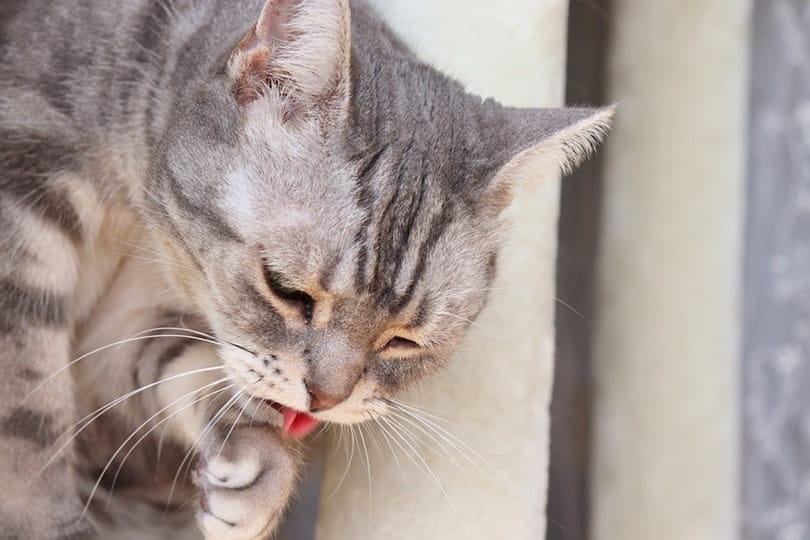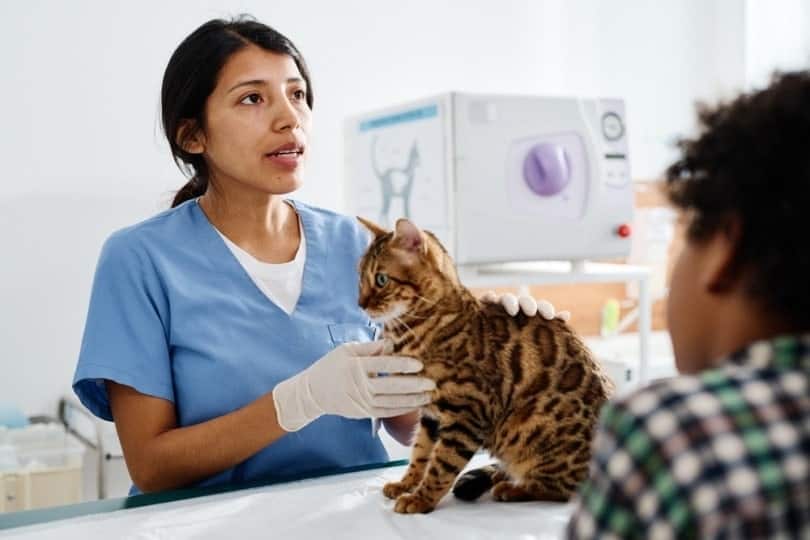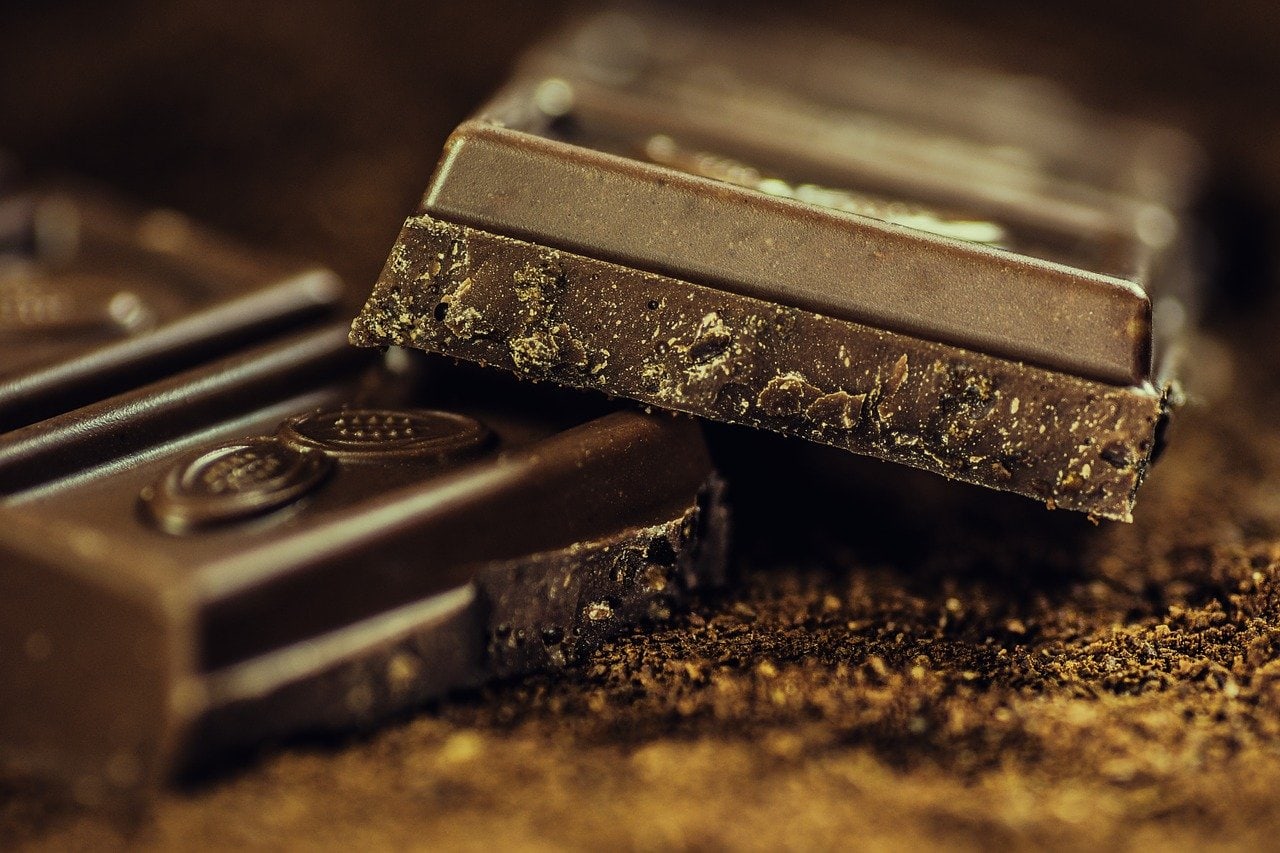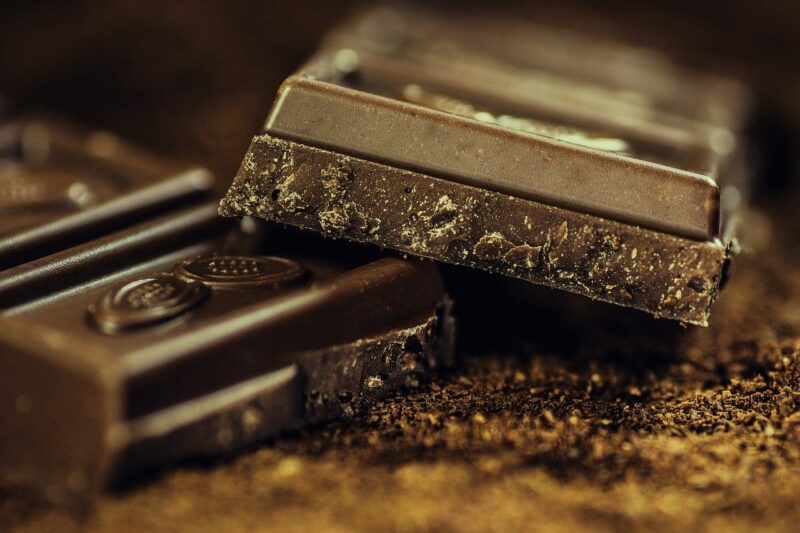Cats are obligate carnivores and need nothing more than quality animal protein to stay happy and healthy throughout their lives. While cats are typically picky when it comes to what they will and won’t eat, they sometimes get curious and adventurous. Your cat might try to drink soda out of your glass or pick a pea from the leftovers on your plate. But what if they eat a piece of your chocolate bar or take a lick of your hot cocoa? Can cats safely eat chocolate of any kind?
The short answer is no, cats should never eat chocolate, and cat owners should do all that they can to keep it away from them. There is a compound found in chocolate that is toxic to cats, dogs, and other animals. Keep reading to learn more.

Why Chocolate Is Toxic to Cats
Chocolate contains caffeine and a compound called methylxanthines theobromine, which can cause various side effects and even death when consumed in excess. Humans can metabolize these compounds safely, but the same cannot be said for animals like cats. Once these compounds get absorbed into a cat’s body, toxicity can quickly set in. The darker the chocolate, the more caffeine and theobromine are typically contained in it. Mild clinical signs of chocolate toxicity include:
- Restlessness
- Gastrointestinal distress
- Diarrhea
- Vomiting
- Drooling
- Loss of appetite

If toxicity is overwhelming or does not get treated quickly, more severe side effects could develop, which include:
- Excessive thirst
- Excessive urination
- Excessive panting
- Elevated heart rate
- Tremors
- Seizures
- Coma
Even if your cat does not show any signs of toxicity, you should still contact your veterinarian immediately if you witness them eating any chocolate of any kind. If clinical signs do arise, head straight to your local emergency vet clinic.
Can Cats Eat Chocolate Ice Cream?
No, cats should not eat chocolate ice cream, as it contains the same compounds as any other kind of chocolate. It’s not even a good idea to let your kitty have one lick of your chocolate ice cream, as you can’t know how much caffeine or theobromine is contained in it. Even if chocolate wasn’t bad for cats, ice cream and other dairy products are not healthy food choices for them. Eating dairy can lead to an upset belly and problems with digestion. Cats don’t need dairy to stay healthy, so it’s a good idea to skip the ice cream and choose meaty snack and treat options instead.

What to Do If Your Cat Eats Chocolate
If you witness your cat eat any kind of chocolate in any amount, immediately call your veterinarian and/or the Pet Poison Helpline at +1 (855) 764-7661. If signs of toxicity occur, it’s a good idea to head to the closest emergency clinic while you make your phone calls. There is no time to waste.

Treatment for Chocolate Toxicity in Cats
If your cat ends up developing chocolate toxicity, they should be seen by a veterinarian as soon as possible to determine whether treatment is viable. If it’s not too late or the toxicity isn’t too serious, your vet might induce vomiting to prevent the chocolate compounds from being absorbed by the body and organs. Fluids may be administered to help rehydrate the body and improve toxin elimination. Medications and other procedures might also be recommended depending on the severity of the toxicity and the specific diagnosis.
Preventing Chocolate Toxicity in Your Cat
The only way to prevent chocolate toxicity in your cat is to keep chocolate out of their reach at all times. Put all your chocolate products in a cupboard, pantry, or fridge instead of on an easily accessible shelf. Give your kitty a treat of banana slices, sliced carrots, or freshly cooked chicken while you’re enjoying a chocolate treat, so they won’t be tempted to try to eat any of it. If you’re growing a cacao tree in your yard, don’t allow fallen pods to stay on the ground where your cat can get a hold of them.


In Conclusion
Cats should never eat chocolate because it contains multiple compounds that are toxic to them. Your kitty might get away with licking a bit of chocolate, but you should always be safe rather than sorry, and contact your vet if you see the consumption happen. If you have any questions or concerns about the toxicity of chocolate, contact a trusted veterinarian to schedule a consultation appointment.
Featured Image Credit: Alexander Stein, Pixabay






